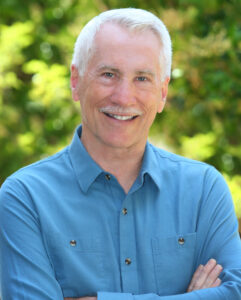This is the official website of the Association of Russ Gerber, CSB. Please email Russ directly (russgerbercsb@gmail.com) with questions regarding Christian Science class instruction or his annual Association meeting.
Welcome
September 17, 2025 By Russ Gerber
 There’s a Psalm that has helped me discover and follow my life’s path: “The steps of a good man are ordered by the Lord: and he delighteth in his way” (Psalm 37)
There’s a Psalm that has helped me discover and follow my life’s path: “The steps of a good man are ordered by the Lord: and he delighteth in his way” (Psalm 37)
While in college I took courses in architecture, but discovered that my heart was in radio broadcasting, so I took that step and spent time working at the college radio station. Then I was drafted into the Army, which led to serving in American Forces Radio, followed by years of work in commercial radio, then as a national radio consultant. In that capacity I was hired to help The Christian Science Monitor launch ‘Monitor Radio’.
During that time my interest in Christian Science broadened and deepened. Our family returned to California so that I could take the next step, becoming a full-time public practitioner of Christian Science and later a Christian Science teacher.
Soon I was invited back to Boston to serve as an Associate Editor for the Christian Science religious publications and to host the Radio Edition of the Christian Science Sentinel. Following those steps I was appointed to Manager of Christian Science Committees on Publication, working with media and religious organizations throughout the world to correct impositions on the public regarding Christian Science. Eventually I returned to California to resume my full-time practice of Christian Science, and delight in all the steps that led to this point.
Today my wife and I reside in Orange County, California, where I teach class and conduct my annual Association meeting.